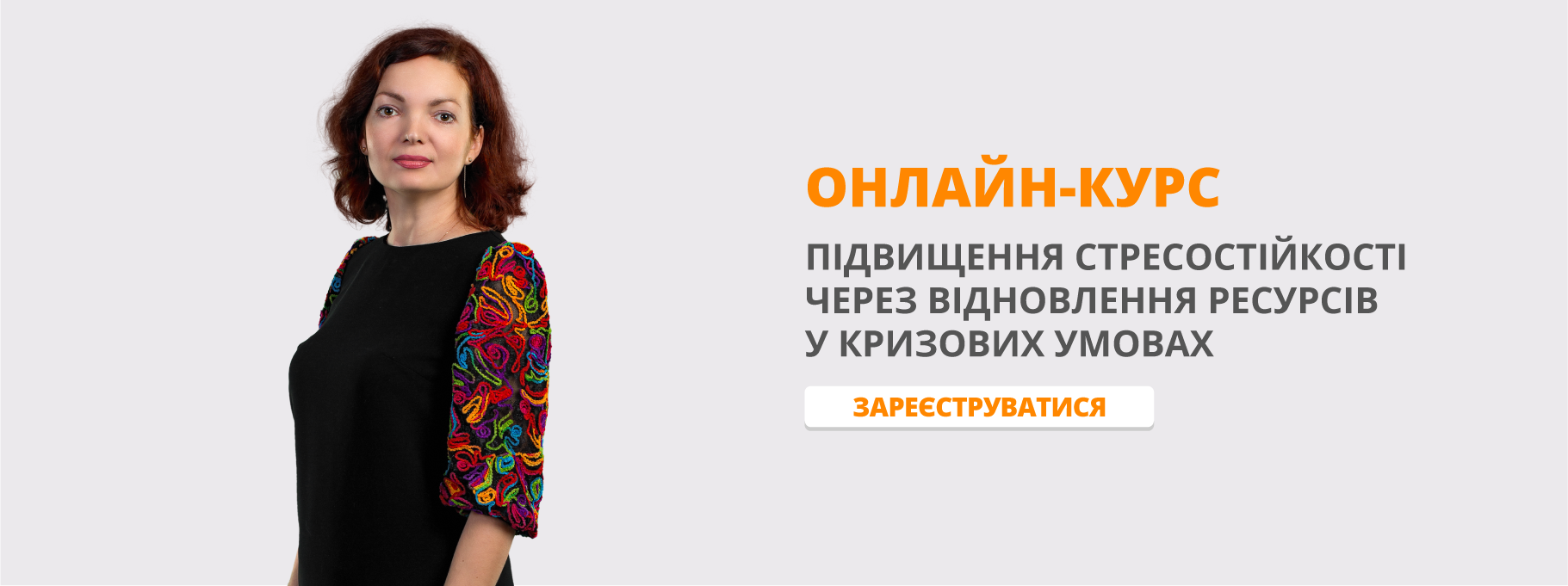Розробка уроку з англійської мови за темою "Schools in Ukraine"
Розробка уроку англійської мови для 8 класу за підручником English (Alla Nesvit) і презентація до нього.
Англійська мова
8 клас
Школи України
Автор: Сергієнко Ірина Сергіївна, вчитель англійської мови Білоцерківської ЗОШ І-ІІІ ступенів №7 імені генерал-полковника Геннадія Воробьова
TOPIC: EDUCATION.
LEVEL: A2
Objectives:
- To learn new words (a lyceum, a secondary school, a gymnasium, a language school, a private school, life skills, a grown-up)
- To practice new words in the sentences;
- To revise the Present Simple, Present Continuous Tense, There are… (ex. 1 p.39)
- То form language competence in speaking (ex.1 b p. 38), reading (ex. 3 p. 39) ;
- To develop listening comprehension;
- To develop pupils' pair and group communicate skills;
- To reinforce topic items and pupils' knowledge on the topic;
- To develop pupils' attention and reaction, memory, logical thinking creative abilities;
- To develop pupils` interest to education.
EQUIPMENT: didactic materials, records, the book by Alla Nesvit English, presentation (https://docs.google.com/presentation/d/1vsW7F3t7fb8SArm-8ivrh5csIv6TJ13R/edit#slide=id.p1)
Procedure of the Lesson
I. Greeting.
Teacher: How are you today?
II. Warming-up
- Teacher: If you look at the blackboard, you’ll read the secret message, that’s the motto of the lesson. Try to read it.
Knowledgeislikeaflowerifitisnotcultivateditwillnotbeharvested.
Key: Knowledge is like a flower: if it is not cultivated, it will not be harvested
Teacher: OK, how do you understand it?
- The Teacher informs the subject
The theme of our lesson is SCHOOLS IN UKRAINE. Today we`ll speak about different types of schools in our country.
The Problem question of our lesson: Which school is the best?
- The rhyme about school
Teacher: If we are going to talk about schools, let’s review the rhyme about school.
Mind the clock
And keep the rule;
Try to come
in time to school!
- Speaking
Teacher: Answer my questions:
What school do you study at? Do you always come in time? Are there any school rules that you have to follow? (a uniform, to come in time, do homework)What do you like about going to school? Is your school a nice place to study?
III. Main Part
1) Check on homework Ех. 9, р. 37
Your task for today was to write about the thing you like / don't like about going to school.
2) Vocabulary work
- Teacher: Children look at the blackboard. You can see a flower. The petals are the names of different types of school. (The teacher will open the petals while learning the new words)
Teacher:
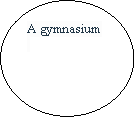
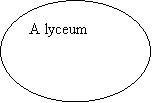
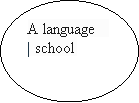
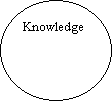
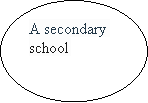
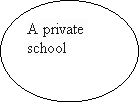
- Ex. 1, p. 38 — Look! Listen and repeat:
A lyceum |laɪˈsiːəm| ліцей.
A secondary |ˈsekəndəri| school загальноосвітня середня школа.
А gymnasium |dʒɪmˈneɪzɪəm| гімназія.
A language |ˈlæŋɡwɪdʒ| school спеціалізована школа з поглибленим вивченням іноземної мови.
A private |ˈpraɪvət| school приватна школа
Teacher: There are two new words that can help you describe schools:
Life skills |laɪf skɪlz| практичний життєвий досвіт.
A grown-up |ˈɡrəʊn ʌp| дорослий.
2) Practicing new words in the sentences.
Match the words with their definitions:
- A lyceum a) an adult;
- Life skills b) an educational institution where the second
stage of the three schooling periods;
- A grown-up c) a school for the teaching of a foreign language or
languages
- A language school d) a school that does not receive financial support from
the government
- A gymnasium e) a type of school with a strong emphasis on
academic learning, and providing advanced
secondary education
- A secondary school f) any personal abilities that help an individual to cope
with people, problems, situation changes or stress
- A private school g) an institution for popular education
providing discussions, lectures, concerts, etc.
Fill in the gaps with new words:
- Max knows English and German very well because he studies at ____________ .
- Alex goes to the _____________ near his house.
- Vicky is good at Maths, she studies at the_____________.
- Tying your shoe laces, swimming, driving a car and using a computer are, for most people, useful _____________.
- John wants to be an engineer and decided to enter. the Politechnical __________.
- Ann is _____________. She has a wonderful job.
- Kate`s parents pay for her education and she studies at a wonderful ____________school.
3) Group work. Look at the photos (ex. 1 b p. 38) and use the prompts to ask and answer the questions about them. Reading the dialogues.
Card 1
|
А.Where is Olena?
|
|
B. She's in the Information Technology classroom.
|
|
A. What is she doing there?
|
|
B. She is preparing a report on History.
|
|
A. Are there good facilities in her school?
|
|
B. Yes, there are.
|
|
A. What type of school does she study at?
|
|
B. She studies in a secondary school.
|
|
Card 2
|
|
А: Where is Oles?
|
|
He`s in a school basketball team?
|
|
What is he doing?
|
|
He is training for the competition.
|
|
Is Oles fond of Algebra and Geometry?
|
|
Yes, he is.
|
|
What type of school does he study at?
|
|
He studies at a lyceum.
|
Card 3
|
Where are the schoolchildren?
|
|
They are at the social work.
|
|
What are they doing?
|
|
They are working cooperatively.
|
|
Are they developing life skills?
|
|
Yes, they are.
|
|
What type of school do the pupils study at?
|
|
They study at a gymnasium.
|
|
Card 4 Where are the pupils of a language school?
|
|
They are in the European Club.
|
|
Do they have a lot of pen-friends around the world?
|
|
Yes, they do.
|
|
What are they doing now?
|
|
They are writing letters. They want to learn more about the life in other countries.
|
|
What type of school do the pupils study at?
|
|
They study at a language school.
|
4) Pre-reading activity. Ex. 3 p 39
- Teacher: Now look at the pictures. You can see pupils. Where can they study? What kind of pupils are they? Are they responsible? Do they study well?
- New words that pupils can find in the text:
The academic |ˌækəˈdemɪk| footstep |ˈfʊtstep| академичний крок
enter |ˈentə| вступати
distinctive |dɪˈstɪŋktɪv| визначний
Previous |ˈpriːvɪəs|попередній
Experience |ɪkˈspɪərɪəns| досвіт
- Translate the word-combinations:
The academic footsteps of his two elder brothers
To enter the same lyceum
A very distinctive year
My sister`s previous experience
5) Reading. Ex. 3 p 39
6) After –reading Activity.
- Ex. 4, p. 39 — Read and tick the statements M, N, I.
M. I am fond of Maths and Physics.
N. I had a very distinctive year and my brother's and sister's previous experience was very helpful.
І.1 have five English lessons a week.
M. I have made excellent progress in my studies.
I. It's very important that we can choose school for ourselves to go to.
N. I am proud to be a part of this gymnasium.
- Answer the questions:
Why did Maksym decide to study at the lyceum?
What subjects is he fond of?
Where does Natalia study?
Is she proud to study there?
Why is Ihor happy to study at a language school?
5) Speaking
Teacher:What is the difference between schools?
Where do you think to study better? Answer the question using the phrases on the desk. ( The method PREC)
Position
Reason
Example
Conclusion
Teacher: As for me I think that our school number seven is the best. Your parents brought you when you were kids, you spent the most part of your lives here. You respect your teachers and study well.
Teacher: Pupils! Look at the flower! There are a lot of different schools and as you can see, all the schools are good, they all give knowledge. It does not matter where pupils study. It depends on pupils` and teachers` skills.
6) Singing the song
And at the end of the lesson we`ll sing the song about school.
(school is teaching)
To write words like Motherland
In a neat and knowing hand
School is teaching,
School is teaching,
School is teaching.
Add up figures with a run,
Not to tease a younger one
School is teaching,
School is teaching,
School is teaching.
IV. Summing up
Homework and marks.
Teacher: Your homework for next lesson is to learn the new words and make up 6 sentences using them. The most pupils get marks for the lesson.


про публікацію авторської розробки
Додати розробку
